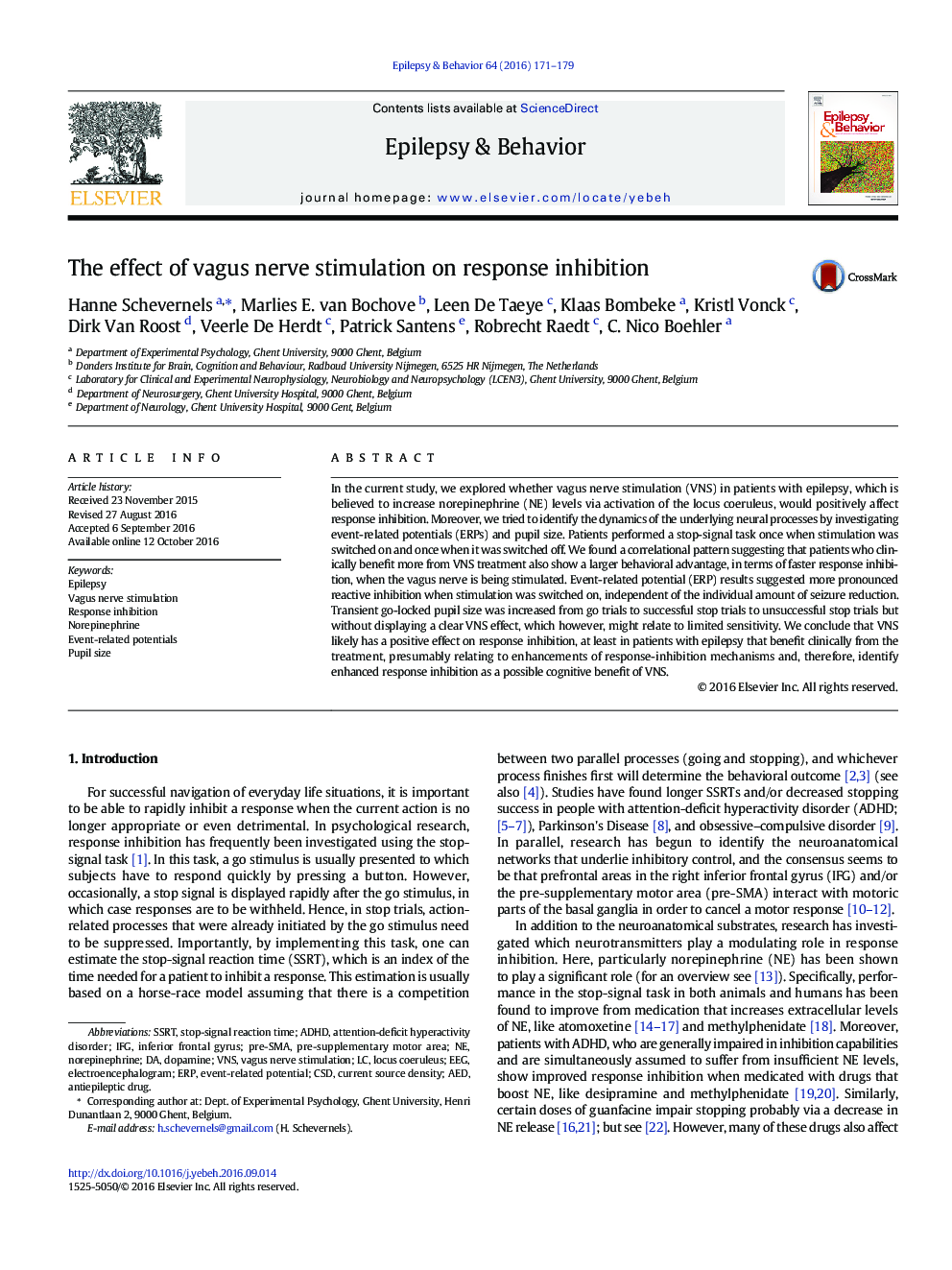| Article ID | Journal | Published Year | Pages | File Type |
|---|---|---|---|---|
| 5628099 | Epilepsy & Behavior | 2016 | 9 Pages |
â¢ERP study investigating the effect of VNS in patients with epilepsy on action inhibitionâ¢We found an inhibitory benefit of VNS, likely due to changes in norepinephrine levels.â¢Behaviorally, this was largest for clinical responders to VNS treatment.â¢Reactive inhibition (indexed by the stop P3) was boosted in VNS ON conditions.
In the current study, we explored whether vagus nerve stimulation (VNS) in patients with epilepsy, which is believed to increase norepinephrine (NE) levels via activation of the locus coeruleus, would positively affect response inhibition. Moreover, we tried to identify the dynamics of the underlying neural processes by investigating event-related potentials (ERPs) and pupil size. Patients performed a stop-signal task once when stimulation was switched on and once when it was switched off. We found a correlational pattern suggesting that patients who clinically benefit more from VNS treatment also show a larger behavioral advantage, in terms of faster response inhibition, when the vagus nerve is being stimulated. Event-related potential (ERP) results suggested more pronounced reactive inhibition when stimulation was switched on, independent of the individual amount of seizure reduction. Transient go-locked pupil size was increased from go trials to successful stop trials to unsuccessful stop trials but without displaying a clear VNS effect, which however, might relate to limited sensitivity. We conclude that VNS likely has a positive effect on response inhibition, at least in patients with epilepsy that benefit clinically from the treatment, presumably relating to enhancements of response-inhibition mechanisms and, therefore, identify enhanced response inhibition as a possible cognitive benefit of VNS.
